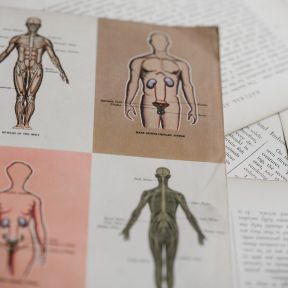ANXIETY- Where Anxiety Lives in Our Bodies. Understanding physical systems and their responses to anxiety.

KEY POINTS-
- Stress and overwhelm can impact the body's physical responses.
- Physical responses to stress can often mimic more serious medical conditions.
- Understanding the body's systems can be helpful in recognizing when we are having an anxiety response.
Our bodies are composed of a number of unique systems that work together to keep us alive and healthy. Sometimes, particularly when we are overwhelmed, stressed, or worried, these systems’ wires get crossed and the result can be increased anxiety, panic, and feelings of impending doom. When we experience illness anxiety, our physical symptoms often feel acute and intense, as our stress and worry manifest in the systems where we also might experience a serious medical condition. An understanding of these various systems and how they respond to stress is helpful in differentiating between a physical anxiety response and a true medical emergency. Below, we explore a few of the body’s common responses to stress and overwhelm and where they occur.

Muscular System
When we experience worry, stress, and anxiety, our muscles often tighten. When we consider how many of our anxiety centers are muscles, we gain a better understanding of why these areas respond so intensely when we are stressed. Understanding, for instance, that the bladder is a muscle may explain why many people report frequent urination when they are anxious. Similarly, some people may report diarrhea or lack of bowel control when they are nervous; recognizing that the rectum is a muscular tube explains this phenomenon. The heart, of course, is also a muscle, so it makes sense that it tightens and works harder when it experiences stress. The muscular systems’ responses to anxiety, while frightening and intense, do not signal a larger medical emergency.
Organs and Cortisol
Cortisol is the body’s naturally produced stress hormone. When it is triggered, it overproduces and focuses its distribution on the stressful feeling rather than on other necessary places, such as the immune system. During the stress response, cortisol is directed toward the organs, specifically the heart, resulting in escalated heart rate; the lungs, resulting in quickened breathing; and the brain, resulting in headaches, migraines, and brain fog. No wonder, then, that people experiencing anxiety often report a feeling that they cannot catch their breath, that their heart races, and that they are confused and unable to focus. These physical responses can be confused with serious issues such as heart attacks, aneurysms, or strokes.
Respiratory System
When we respond to fear, the body “battens down the hatches,” preparing to preserve and protect itself. Rising blood pressure and increased respiration are the body’s way of directing adrenaline toward its “fight” response. To the anxious person, this can cause feelings of lightheadedness, dizziness, and shallow breathing or shortness of breath as the respiratory system works harder and faster than it would in normal circumstances. These sensations can be easily misinterpreted as indicators of a medical emergency.
Central Nervous System
The central nervous system—in a sense, the switchboard of the body— works to receive and process sensory information and to disseminate signals to the body based on that information. When overwhelmed by sensory information, the signals that are sent out can negatively affect an individual’s mood and emotions. For example, an overresponse to sensory information may cause the brain to flood the nervous system with hormones and cortisol, resulting in a physical response such as panic, and feelings of panic can easily mimic more serious physical problems.
When all of these systems (the various organ systems, the musculoskeletal system, the central nervous system, and the respiratory system) are overfunctioning at the same time, we often experience intense anxiety and panic as the body struggles to keep up with its systemwide defensive fear response. Understanding this connection is vital to our ability to cope adaptively and healthily with intense feelings and their corresponding physical responses.
- Questions and Answers
- Opinion
- Story/Motivational/Inspiring
- Technology
- Art
- Causes
- Crafts
- Dance
- Drinks
- Film/Movie
- Fitness
- Food
- Игры
- Gardening
- Health
- Главная
- Literature
- Music
- Networking
- Другое
- Party
- Religion
- Shopping
- Sports
- Theater
- Wellness
- News
- Culture
- War machines and policy

